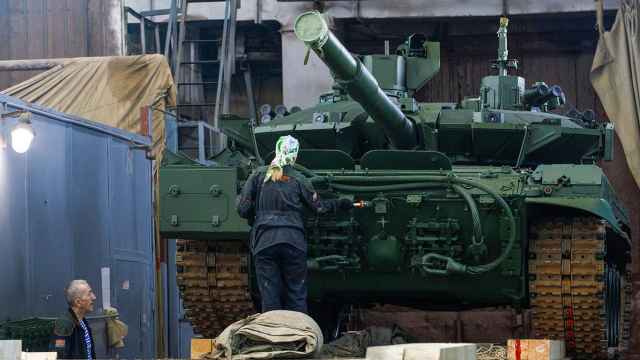The number of potentially hazardous industrial sites without disaster warning systems has decreased this year, but almost 30 percent still do not have systems in place to warn nearby residents of an impeding threat according to a recent report by the Emergency Situations Ministry.
Almost 14,000 such sites currently function in Russia and 70 percent of them are located in cities with populations of more than 100,000 people. Included in this roster are facilities that use, produce, process, store or transport radioactive, flammable, easily explosive or dangerous chemical and biological materials.
Most of the sites were put into operation 40 to 50 years ago. The normal facility lifecycle is 15 years, so they are deemed a hazard in case of an emergency situation — like last week's earthquake in the Far East whose tremors were felt in Moscow.
The number of sites that have warning systems has grown by 1.8 percent over the past year and now amount to 72 percent of the total. Of the remaining sites that do not have the proper alarm systems, 37.2 are state owned and 38 percent are private enterprises.
The Orenburg and Saratov regions as well as the Khanty-Mansiisk and Yamal-Nenets autonomous districts were deemed completely unready to warn locals about emergencies, according to the ministry report.
Ministry officials also determined that 15 regions do not allocate enough resources to service existing alarm systems.
Talk about emergency warning systems escalated after the flooding of Krymsk in July of last year, which resulted in 170 deaths. There were almost no flood warning systems in place and the few people who did hear alarms did not have enough time to flee to safety.
Related articles:
A Message from The Moscow Times:
Dear readers,
We are facing unprecedented challenges. Russia's Prosecutor General's Office has designated The Moscow Times as an "undesirable" organization, criminalizing our work and putting our staff at risk of prosecution. This follows our earlier unjust labeling as a "foreign agent."
These actions are direct attempts to silence independent journalism in Russia. The authorities claim our work "discredits the decisions of the Russian leadership." We see things differently: we strive to provide accurate, unbiased reporting on Russia.
We, the journalists of The Moscow Times, refuse to be silenced. But to continue our work, we need your help.
Your support, no matter how small, makes a world of difference. If you can, please support us monthly starting from just $2. It's quick to set up, and every contribution makes a significant impact.
By supporting The Moscow Times, you're defending open, independent journalism in the face of repression. Thank you for standing with us.
Remind me later.





